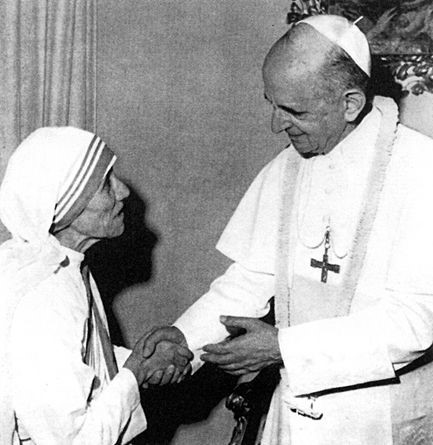José Maria C.S. André
A late issue of L’Osservatore Romano, the Vatican’s official newspaper, put me on the trail of a book by Fr. Leonardo Sapienza, head of the Prefecture of the Papal Household, in charge of the Pope’s protocol.
The title of the book, Paolo VI – Non esistono lontani, is inspired by the Pope’s phrase: “for a Catholic there should be no distant ones”, equivalent to everyone is our neighbour. Pope Francis has several points and expressions in common with Paul VI, not just this one. As we know, Francis beatified Paul VI in 2014 and canonized him in 2018.
The book collects various speeches and writings by Paul VI, some unpublished, such as the transcript of the audience given in 1970 to Cardinal Bernard Alfrink of Utrecht (Netherlands), on priestly celibacy. An interesting text and certainly the one that attracted media attention the most. Sapienza recalls that when some insisted again in ending priestly celibacy (namely during the Synod on the Amazon in 2019), Francis repeated Paul VI’s statements several times. On his return from his trip to Panama (January 2019), he specifically declared:
— “(…) I recall St. Paul VI’s phrase ‘I would rather give my life than change the law of celibacy.’ I remember and I want to say it again, because it’s a courageous phrase. He said this in 1968-70, at a more difficult time than now.”
After searching in vain for the phrase, Sapienza asked Pope Francis where he had picked it up and he replied that he heard it from various people, but asked him to keep looking, because he wanted to know the reference. The archivists of the Secretariat of State were called and finally managed to locate the phrase, in the aforementioned audience with Cardinal Alfrink. Sapienza says that Francis held him the documents found, adding a hand-written card: “This is approximately the expression ‘I would rather give my life’ [which he had attributed to Paul VI]. I think like St. Paul VI, only with one difference: he is a saint”.
To appreciate Paul VI’s firmness in this audience, we should bear in mind that he had been very clear, three years earlier, in the Encyclical Sacerdotalis Caelibatus. I briefly extract a few sentences from the transcript of the audience.
“The Holy Father says that he has thought a lot about yesterday’s conversation, (…) the situation in Holland is serious, requires understanding and charity (…). Alfrink refers to the declaration of the [Dutch] bishops (…) about the ordination of married men and the readmission of married priests. (…) The Pope declares: impossible.”
Alfrink tries to tone it down. “The Pope replies: you have to be explicit.”
They talk about a particular case. The transcript continues: “The Pope thinks it’s necessary to hold firm.”
Cardinal Alfrink recalls the lack of priests. “The Holy Father says that (…) it shouldn’t be done. The Pope has the vision, the responsibility; he thinks it would be betraying the Church.”
Alfrink insists. The Pope won’t budge. Arguments from both sides. Alfrink proposes, even with a restrictive criterion. “[The] Holy Father says: I’m not convinced”. Alfrink mentions married men of high quality. “Holy Father: let them do the secular apostolate”. Alfrink asks for study. Both argue. “Holy Father: I wouldn’t have a clear conscience. It would be turning the discipline of the Latin Church upside down.” The Holy Father accepts that the issues should be studied. “But, out of a duty of sincerity, I don’t want to give you hope that married priests will be accepted (…) This can happen in extreme cases, but not as a rule, nor as a norm. That would be ruin.”
The last sentence is “I would rather die or resign!” Cardinal Villot, then Secretary of State, wrote next to this sentence “not to be disclosed”.
Sapienza comments on Paul VI’s sense of responsibility: “For [him], fidelity is imperative and difficult, but necessary, to be entirely faithful to the message. Even if he [Paul VI] is led to conclude sadly: ‘Fidelity is not the virtue of our time’ (October 11, 1972).”
Image: Two saints: Paul VI with Mother Teresa. From the photo album that accompanied the documentation of Paul VI’s cause for canonization (“Positio super virtutibus”).


 Follow
Follow


